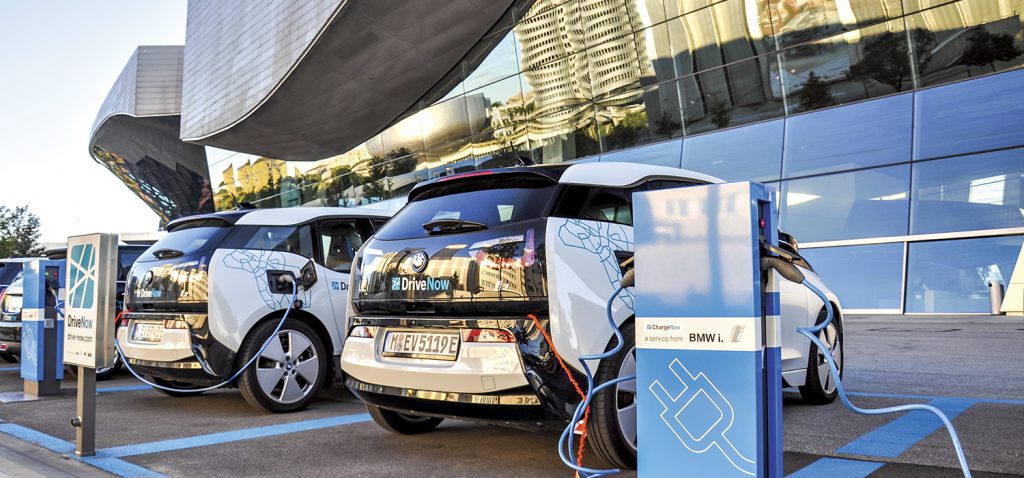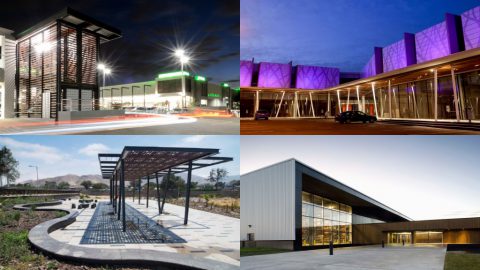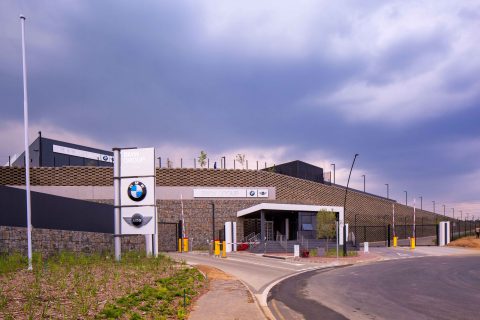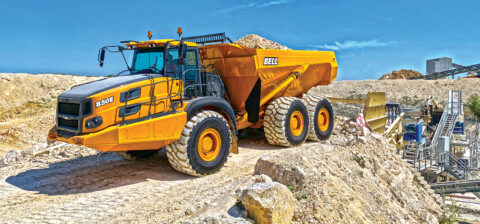SA Mining
Electrified
There are currently around 450 electric vehicles operating in South Africa. However with more automotive manufacturers entering the fray, the purchase price worldwide is set to be significantly lowered. And this will do wonders to encourage motorists to purchase EVs, explains Carel Snyman, electric vehicle industry association (EVIA) chairperson. The only problem that remains in South Africa, he says, is the high tax on these vehicles.
It took 60 months for EV sales to reach a million worldwide, the next million took 18 months and only 12 months to reach three million, says Snyman. South Africa has had extremely low market penetration due to poor support from government for this global move towards cleaner energy sources for transportation.
Professional services company Deloitte reports that the pace of global EV adoption rose from two million units in 2018 with an expected increase to four million in 2020, 12 million in 2025, rising to 21 million in 2030.
“By 2030, battery electric vehicles (BEVs) will significantly outperform the rest of the EV market, accounting for 70% of total EV sales,” the company said, citing accelerated uptick owing to “growing consumer demand for greener vehicles, coupled with government policies that offer financial incentives while placing inner-city restrictions for gasoline and diesel vehicles”.
In a price comparison between an EV such as the Nissan Leaf to a similar petrol car, the EV costs around R150 000 more, explains Snyman.
“This is a direct result of the 43% tax burden we pay in South Africa.”
Deloitte has forecast that by 2024 the cost to own a BEV will be on par with that of a petrol or diesel vehicle, which could further boost demand.
A poll undertaken late last year by AutoTrader, South Africa’s online automotive marketplace, noted that 55% of South African motorists were interested in purchasing an electric car.
“Even though the Nissan Leaf and BMW i3 electric cars carry hefty tax burdens, there remains a demand in South Africa,” states Snyman.
“If you do the math you soon realise that the savings in energy cost and reduced maintenance make up for the high upfront price of the vehicle. An electric car is much more efficient in terms of energy consumption compared to an internal combustion engine (ICE) car which essentially wastes energy and poisons city air.”
Luxury vehicle brand Jaguar has announced that it will soon launch its Jaguar I-Pace with German car manufacturers Audi and VW also signalling their intention to manufacture EVs.
Jaguar has indicated that it will be investing R30-million for the establishment of 82 new public charging stations at the country’s major hubs and frequently travelled holiday routes. The infrastructure will accompany the launch of its new EV. According to Snyman, a shift to EVs by locals will result in lower foreign exchange leaving the country due to savings in imported fuel.
South Africa imported 8.96 billion kilograms of crude oil from the start of 2018 up to the end of May 2018, which amounted to R54.42- billion, states South African Market Insights.
According to Snyman, South African mining operations have “always been competitive on a global level and started using electrified transport systems years ago”.
Not only does adoption of EV reduce the need for removing excess heat from underground but also improves air quality, thus reducing the costs of air conditioning as well as energy consumption. The idea of electric mobility is not new, he says, citing the electrification of vehicles since 1832 when Robert Anderson developed the first crude electric car.
It was only after the 1870s, however, that these cars became practical and increased in numbers. The first land speed record was set by a Frenchman in an electric car when he reached 101km/h.
Advantages of EV
The EV has long been regarded as a clean green transport option that brings numerous advantages to the table.
Following the decision by European cities to ban diesel cars, owing to associated high pollution and the green agenda, Snyman expects the uptake of EVs to be even faster.
The World Health Organization (WHO) recently reported that air pollution causes three million premature deaths a year worldwide. Air pollution from road transport costs Organisation for Economic Co-operation and Development countries an estimated $1-trillion per annum in negative health effects (cancer, premature death, asthma, heart attacks, etc.).
A further advantage of adopting EVs, says Snyman, emanates from the much better energy conversion into kilometres (the main purpose of the car).
This means the electric car consumes four to six times less energy compared to the ICE car to do the same work. Furthermore this energy can be from renewable sources, a clean energy form. Also, the simple internal mechanics significantly reduce the need for vehicle servicing, given that there is no wear and tear on vehicle parts. “Vehicle maintenance and servicing becomes superfluous and increases the attractiveness for owning an EV over and above the ICE motorcar. With battery costs falling and range increasing, it makes the electric vehicle a clear choice. It has been found that batteries in Tesla cars last more than 10 years – an added attractive feature of the EV.”
The consideration by more and more South Africans for off-grid energy solutions, using solar-powered electricity for the home, will increase the allure of EVs, given the solar power charge option. The adoption of solar PV energy for the home and the car will see a reduced payback period. The “plug and drive” option makes the need for going to petrol stations obsolete. Most users will charge the vehicle at work or at home, or both.
EVs drive demand for battery minerals
From a minerals perspective, South Africa, with close to 80% of the world’s platinum reserves, will see a significant shift in demand away from platinum used for catalytic converters to minerals needed in batteries, i.e. cobalt, vanadium, lithium and graphite, found in South Africa and Africa. This will create huge opportunities for beneficiation locally.







 Sign-up and receive the Business Media MAGS newsletter OR SA Mining newsletter straight to your inbox.
Sign-up and receive the Business Media MAGS newsletter OR SA Mining newsletter straight to your inbox.